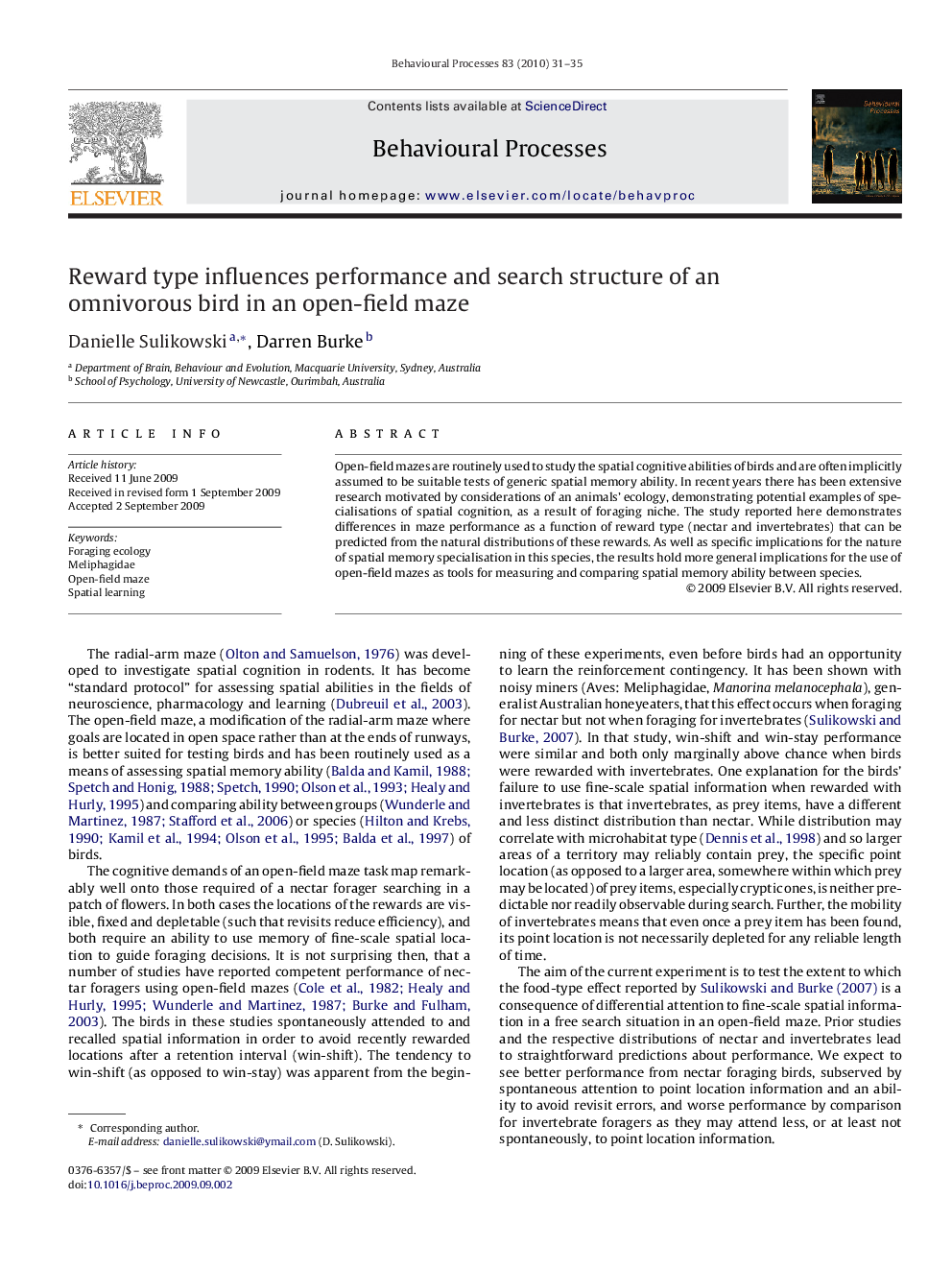| Article ID | Journal | Published Year | Pages | File Type |
|---|---|---|---|---|
| 2427260 | Behavioural Processes | 2010 | 5 Pages |
Open-field mazes are routinely used to study the spatial cognitive abilities of birds and are often implicitly assumed to be suitable tests of generic spatial memory ability. In recent years there has been extensive research motivated by considerations of an animals’ ecology, demonstrating potential examples of specialisations of spatial cognition, as a result of foraging niche. The study reported here demonstrates differences in maze performance as a function of reward type (nectar and invertebrates) that can be predicted from the natural distributions of these rewards. As well as specific implications for the nature of spatial memory specialisation in this species, the results hold more general implications for the use of open-field mazes as tools for measuring and comparing spatial memory ability between species.
